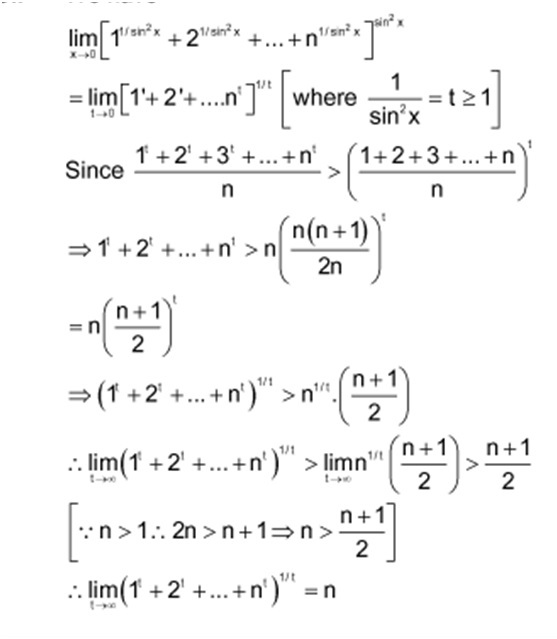Could I use telescoping sum?
x → 0 lim ( 1 sin 2 x 1 + 2 sin 2 x 1 + 3 sin 2 x 1 + … + n sin 2 x 1 ) sin 2 x = ?
This section requires Javascript.
You are seeing this because something didn't load right. We suggest you, (a) try
refreshing the page, (b) enabling javascript if it is disabled on your browser and,
finally, (c)
loading the
non-javascript version of this page
. We're sorry about the hassle.
3 solutions

I think this is direct application of Cauch'theorem
You have not provided an upper bound.
For large powers n a > > ( n − 1 ) a . Therefore, the rest of the terms can be neglected. then the answer is left with n . This is a worthy method for jee, taught to me by Z.Ahmed (the solver of Ahmed's integral)
Tanishq please can you hint as to how the limit equals n
I did it this way. Put y = s i n 2 ( x ) 1 . Now, y → ∞
Let:
a ( n ) = l i m y → ∞ ( 1 y + 2 y + . . . + n y ) 1 / y
Observe:
a ( n ) = l i m y → ∞ n × ( 1 + ( n a ( n − 1 ) ) y ) 1 / y
Since, a ( 1 ) = 1 , a ( n ) = n by induction.
Log in to reply
Log in to reply
how about using sandwich theorem